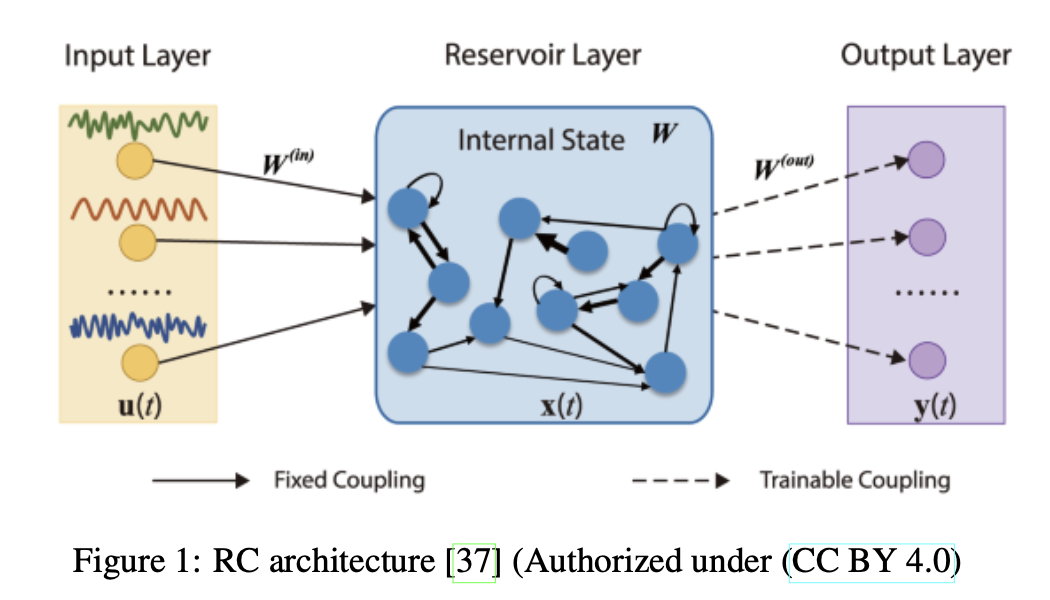Reservoir Computing Survey 📰
Published:

Reservoir Computing (RC) is a computational framework that uses fixed, randomly initialized dynamical systems—reservoirs—to project input data into highdimensional spaces, where only a simple linear output layer is trained. Unlike other deep learning methods that optimize all parameters, RC offers a more com putationally efficient approach. It has shown strong performance in tasks like speech recognition, financial forecasting, epidemiological modeling, and weather prediction, partly due to its nonlinear dynamics and ability to represent temporal information efficiently. RC is well-suited for large-scale, resource-constrained settings such as edge computing, and ongoing advancements in reservoir architectures, multi-reservoir frameworks, and automated hyperparameter tuning promise broader adaptability. This paper overviews RC principles, architectures, properties, key achievements, and challenges and presents experiments highlighting current capabilities and growth areas. We conclude by discussing future directions and open research questions driving the advancement of RC.
Nicolo Micheletti, Thomas Adler

